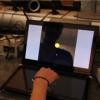16 July 2015
Midlife High Blood Pressure May Negatively Impact the Brain Years Later
Having high blood pressure in your 50’s may impact your ability to keep track or plan ahead in your 80’s. This study reports a connection between high blood pressure at a younger age can affect cognition many years later. It currently appears in the Journal of Alzheimer’s Disease.
14 July 2015
Alzheimer's Disease Prevention: New Journal Article Highlights Benefits of Meditation and Spiritual Fitness
Meditation and spiritual fitness are key components in reducing the risk of Alzheimer’s disease according to a new article, “Stress, Meditation, and Alzheimer’s Prevention: Where the Evidence Stands”, published in an early online version of the Journal of Alzheimer’s Disease 48(1).
14 July 2015
Affordable, Non-Invasive Test May Detect Who is Most at Risk for Alzheimer's
Individuals with amnestic mild cognitive impairment (aMCI) are at twice the risk of others in their age group of progressing to Alzheimer’s disease. Although no conclusive test exists to predict who will develop Alzheimer’s, new research from the Center for BrainHealth at The University of Texas at Dallas is attempting to identify a potential biomarker that could offer a more complete picture of who is most at risk.
26 June 2015
Hartmuth Kolb, PhD, Wins 2015 Alzheimer Award
The Journal of Alzheimer’s Disease is proud to announce that Hartmuth Kolb, PhD, Head of Neuroscience Biomarkers, Johnson & Johnson, San Diego, CA, has been chosen as the recipient of the 2015 Alzheimer Award presented by the Journal of Alzheimer’s Disease in recognition of his outstanding work on the importance and imaging of neurofibrillary tangles and Alzheimer’s disease.
24 June 2015
Multiple Pathways Progressing to Alzheimer’s Disease
The amyloid cascade hypothesis of Alzheimer’s disease (AD) posits that sticky aggregations or plaques of amyloid-beta peptides accumulate over time in the brain, triggering a series of events that ultimately result in the full-blown neurodegenerative disorder. However, in a new study published in JAD, researchers at University of California, San Diego School of Medicine and Veterans Affairs San Diego Healthcare System suggest the picture is not so clear-cut, reporting that early indicators or biomarkers of AD development are not fixed in a specific sequence.
10 June 2015
Anti-rejection medications for transplant recipients protect against Alzheimer’s disease
A new study from The University of Texas Medical Branch at Galveston has revealed that a treatment taken daily by people who have had organ transplants to prevent organ rejection protects against Alzheimer’s disease. An early online version of this paper detailing the findings has been published and is scheduled for publication in the July 7 issue of the Journal of Alzheimer’s Disease.
25 May 2015
Dementia found to decrease sexual activity
In a new study published in the Journal of Alzheimer’s Disease, Dr Rebekah Ahmed and colleagues found that patients with dementia show a decrease in sexual relations with their partners. The study, led by NeuRA’s Prof John Hodges focused specifically on patients with frontotemporal dementia, the second most common cause of young-onset dementia (aged less than 65 years), which is typically associated with changes in behaviour and personality.
5 May 2015
Green Tea Extract and Exercise Hinder Progress of Alzheimer's Disease in Mice
According to the National Institutes of Health (NIH), Alzheimer’s disease (AD) may affect as many as 5.5 million Americans. Scientists currently are seeking treatments and therapies found in common foods that will help stave off the disease or prevent it completely. Now, University of Missouri researchers have determined that a compound found in green tea, and voluntary exercise, slows the progression of the disease in mice and may reverse its effects.
9 April 2015
Waterford researchers find link between Alzheimer’s disease and impaired vision arising from nutrient deficiency
A team from the Vision Research Centre at Waterford Institute of Technology has discovered that patients with Alzheimer’s disease have significantly worse vision than others in their age group and are more likely to be seriously deficient in carotenoids, key nutrients in the eye. Providing an exciting basis for further research, the multidisciplinary Waterford study also shows that it is possible to improve the vision of patients with Alzheimer’s disease by providing supplements that include the macular pigment they have a deficiency in.
30 March 2015
York U Alzheimer’s study on women at risk suggests functional decline relates to deteriorating brain wiring
A video game-like tool developed from the touchscreen thinking and moving task used in the current study may be the next step in helping to improve communication between brain regions.
In their latest brain imaging study on women at risk for Alzheimer’s disease, York University researchers have found deterioration in the pathways that serve to communicate signals between different brain regions needed for performing everyday activities such as driving a car or using a computer.
















